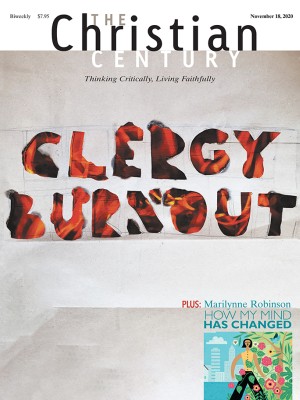Nigerian Christian leaders respond to police brutality protests

After a video of an officer killing a man was released in early October, thousands of Nigerians have taken to the streets to protest decades of police brutality in the country. In particular, #EndSARS demonstrators are demanding that the nation’s Special Anti-Robbery Squad—commonly known as SARS—be disbanded.
Nigerian police officers have a notorious record of human rights abuses. A report by Amnesty International released in June exposed cases of torture and impunity within the police force. SARS, which was created in 1992 to fight armed robbery “with an element of surprise,” is known for illegal arrests, torture, exortion, and extrajudicial killings. SARS officers are also known to stop, detain, and search civilians without cause.
Read our latest issue or browse back issues.
Religious organizations in the country are among those speaking up against police brutality and in support of reforms.
“The police and other security agencies are basically a group of organized thugs at the beck and call of politicians and the ruling party to intimidate and suppress people,” Aniedi Okure, executive director of the Africa Faith and Justice Network and a Catholic priest, told the Century. “The police force in Nigeria was formed to subjugate the people; people are arrested arbitrarily and killed without trial.”
At a press conference in Jalingo, John Wesley Yohanna, the United Methodist Church bishop for the Nigeria Episcopal Area, said the protests were a sign that “Nigerians need true police reform that will end police brutality in this country.” Other church leaders told UMC media outlets that churches in Lagos were providing water and snacks to protesters.
The response from the Christian Association of Nigeria, an umbrella group of Catholic and Protestant denominations, was generally supportive but more measured.
In a statement, the association said it was “aware of the circumstances that led to the agitation” and “regrets the loss of lives and the destruction of some property in the cause of the mass actions. We ask God to console and comfort all the bereaved as He heals those who are recuperating in the hospitals.”
The protests escalated fast and became violent as the government deployed antiriot officers to quell them.
In the first two weeks, Amnesty International reported that about 56 people had been killed by security forces. The protests began drawing international attention on October 21, when video surfaced of security forces shooting at unarmed protesters in Lagos who were singing Nigeria’s national anthem.
Nigerians abroad have held protests in solidarity with demonstrators back home. Marches and demonstrations have been organized in London, New York, Berlin, Paris, and Pretoria.
On October 11, Nigeria’s inspector general of police, Mohammed Adamu, announced that SARS had been dissolved and that a new unit known as the Special Weapons and Tactics team would replace it. Additionally, the government said a judicial panel of inquiry would be set up to investigate police brutality and a special fund would be created to compensate the families of victims.
But the protesters rejected the new unit, saying that the police authorities have never kept their word when it comes to disbanding SARS. The unit was ostensibly banned in 2017 while a reform process was under way, yet officers continued their human rights violations.
Okure says the church calls on everyone to look beyond police brutality and see that it represents a failure of the government.
“The people meant to protect us have turned out to the perpetrators of unlawful killings and crime in the society,” he said. “The primary responsibility of the government is the protection of her citizens. We seek justice for people and promote the right and dignity of the human person created in the image of God—and we want it respected.”






